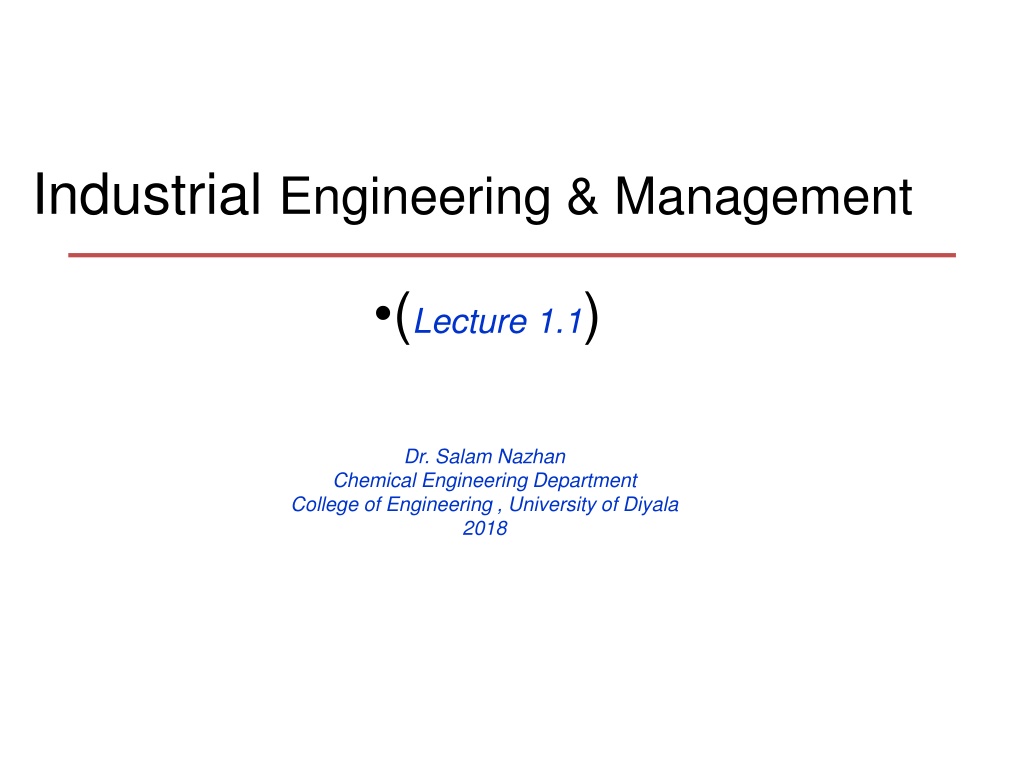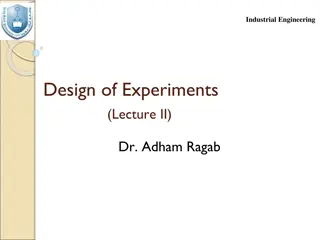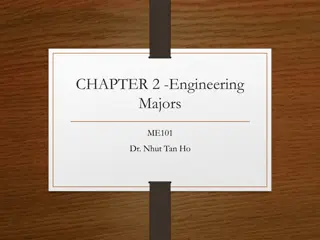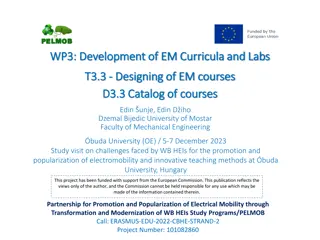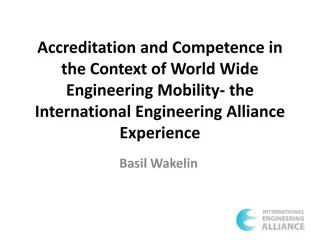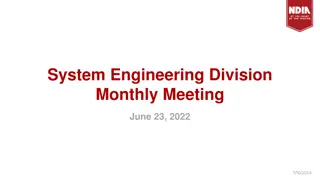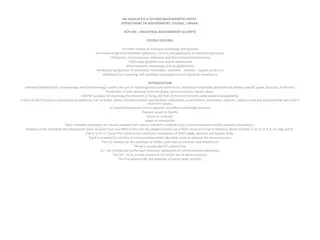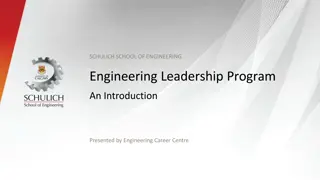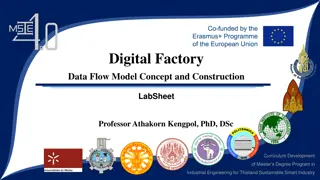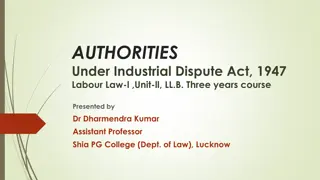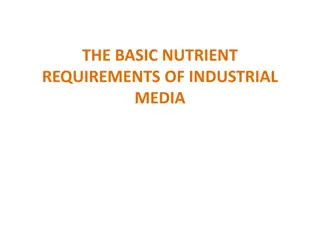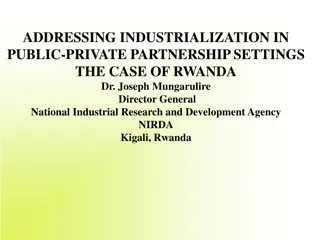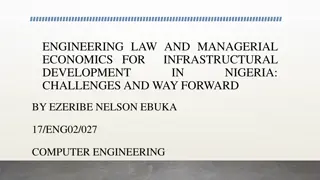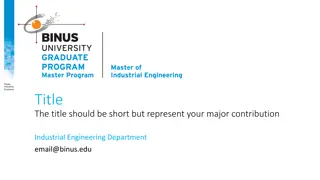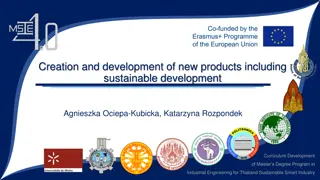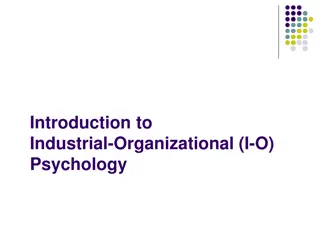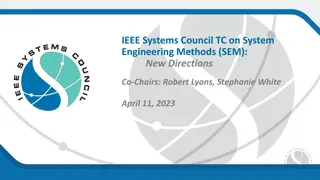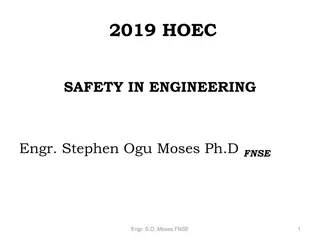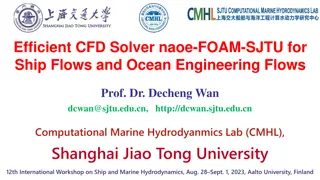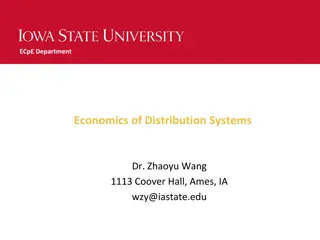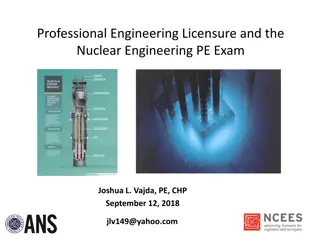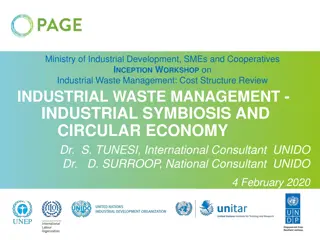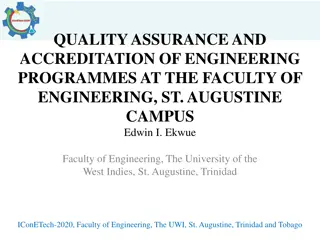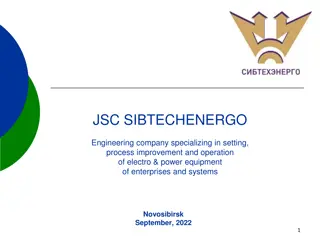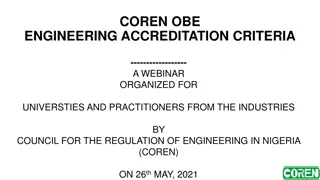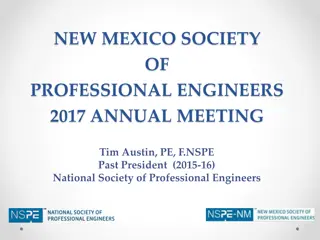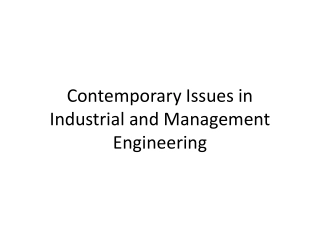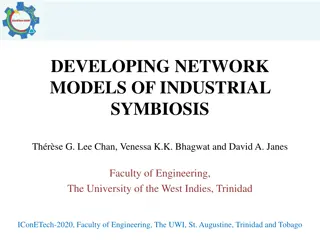Introduction to Industrial Engineering and Management
Industrial Engineering focuses on designing and improving integrated systems involving people, materials, information, equipment, and energy to enhance productivity and efficiency. It aims to optimize resources, reduce costs, and enhance organizational processes. The field combines knowledge from various sciences and engineering principles to achieve strategic objectives in industrial settings.
Download Presentation

Please find below an Image/Link to download the presentation.
The content on the website is provided AS IS for your information and personal use only. It may not be sold, licensed, or shared on other websites without obtaining consent from the author. Download presentation by click this link. If you encounter any issues during the download, it is possible that the publisher has removed the file from their server.
E N D
Presentation Transcript
Industrial Engineering & Management (Lecture 1.1) Dr. Salam Nazhan Chemical Engineering Department College of Engineering , University of Diyala 2018
References Introduction to Industrial Engineering, by Z. Max Shen Industrial Engineering, by N. J. Manck Industrial Management, by Shiv Jhalani Reference Books: 1. Management by Knootz. 2. Management by Griffin. 3. Management theory and Practices by JS Chandan.
Introduction to Industrial Engineer Industrial Engineering is concerned with the design, improvement, and installation of integrated systems of people, materials, information, equipment, and energy. It draws upon specialized knowledge and skill in the mathematical, physical, and social sciences together with the principles and methods of engineering analysis and design to specify, predict, and evaluate the results to be obtained from such system. Usually with objectives such as increasing profits and/or productivity, improving quality, or reducing costs. Alternatively, IE s improve organized work.
Introduction to Industrial Engineer An industrial engineer maximizes the utilization of scarce resources namely, time and money. If a chemical engineer designs a system, it will be chemically and thermodynamically efficient; if a mechanical engineer designs a system, it will be mechanically and energy efficient; and if an industrial engineer designs a system, it will make a profit
Aims Study the techniques for improvement in productivity of the people and equipment. Plan the production schedule accordingly organize material supply for the manufacturing activities. Minimize the direct and indirect cost by optimizing the use of resources available. Learn accounting process, inventory control and process planning. Employ Modern techniques in manufacturing system.
Definition Few noteworthy definitions by experts are: "Management is an art of knowing what is to be done and seeing that it is done in the best possible manner." Industrial management can be defined as the effective and efficient running of an industry using its human and non-human resources in order to achieve its set goals and objectives.
Chronology of IE Babbage thought to specialize labor by skill required (early 1800 s) Frederick Taylor is named as father of scientific management and industrial engineering. -Analyze and improve the work method; -Reduce the times required for the work; -Set standards for the times required Gilbreth extended work of Taylor to consider the human aspects of work to include motion involved in work Henry Gantt developed his chart to preplan, schedule, and monitor work activity Shewhart developed the fundamental principles of statistical process control and work on industrial quality. Disciples became big names in quality
Management It is an ongoing process. Management is not an event; management is something which cannot be completed with a beginning and with an end. Management becomes a process. Process of what? - with a variety of specialist functions. that means, it is a task of bringing various resources together, including the people and making sure that these things are moving towards the stated objectives. that is, now the objectives are important, specialist functions are important and allocations of inputs are important and keyword is, it is an ongoing process.
Management Men, Money, materials and machines; this definition evolved very clearly with respect to the manufacturing management, industrial management- you can t think of management without these four M s - you can always add market, you can always add one more dimension to it; men, money, materials and machines. Men includes certainly women. So, it is the human resource, the people dimension as well as the money; what we used to earlier call as general process has been split into money, materials and machines.
